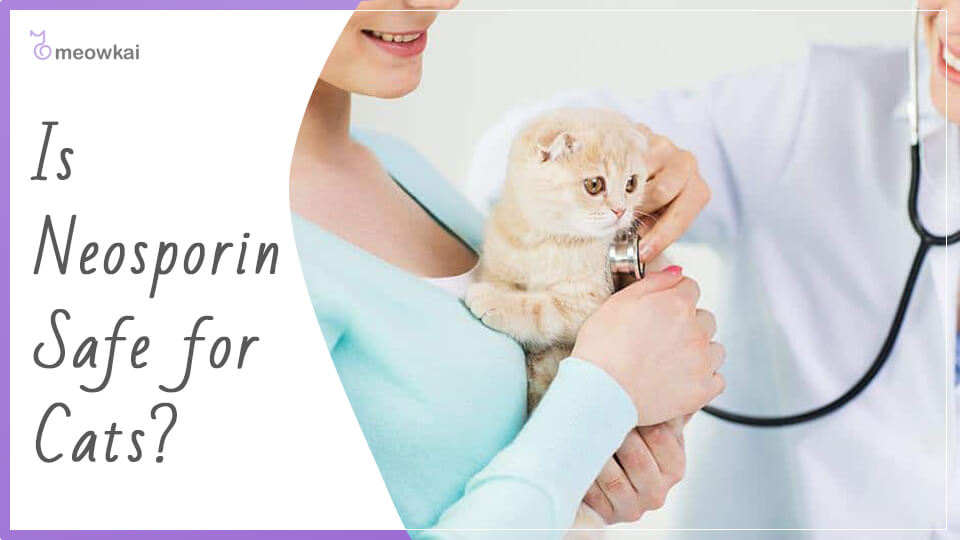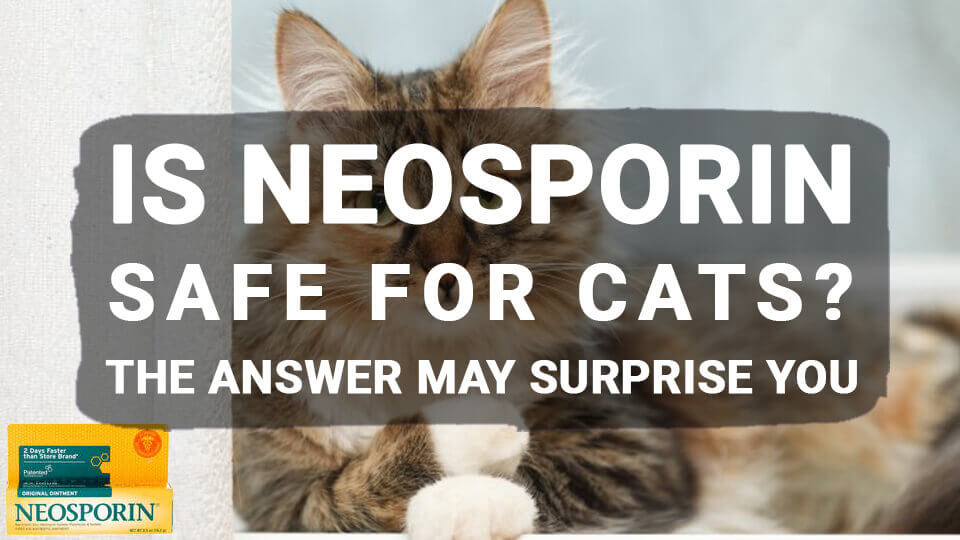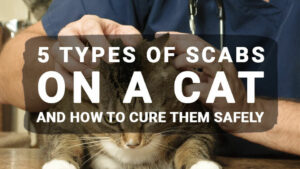As a caring cat guardian, it’s only natural to want your fur-baby to be as healthy and content as possible.
So if you notice things like rashes or skin irritations, OF COURSE you’re going to be concerned. But hold off on applying the first thing you see in your medicine cabinet – at least until you’ve read up on whether it’s safe for your cat or not.
As you browse your first aid kit, you may see a number of remedies that you think will work on your feline, but you must be careful, as some medications that work on humans can be deadly for cats and other pets. So, is Neosporin safe for cats?
Best dewormer for cats? Read our guide
What is Neosporin and what is it used for?
Before we can answer whether it’s safe for cats, we need to understand what Neosporin is and what it’s used for.
If you’re like most people, you’ve at least heard of it, and perhaps you have a tube in your first aid kit or medicine cabinet.
Without getting into medical terms or complex science principles, here are the basic facts: Neosporin is an antibiotic ointment that is used on humans to treat minor scrapes, burns and cuts.
It also treats rashes that may occur from any number of causes, such as poison ivy. Because it’s an antibiotic, it helps to prevent infection. It is quite effective and is available over-the- counter.
Is it safe for cats?
There are some differing opinions on this, but generally, it is NOT recommended for cats. In fact, it could be toxic and deadly for them. That’s because Neosporin contains an antioxidant called, Polymyxin B.
This has been linked to anaphylaxis and death, although these extreme reactions are rare. Generally speaking, however, many vets and other health experts adamantly oppose the use of Polymyxin B on cats.
Cats have very unique metabolisms, which makes them HIGHLY susceptible to becoming ill if given any sort of human medication. If you give them other medications like Tylenol, or Advil, they could suffer from liver or kidney failure, or at the very least cause them gastrointestinal discomfort.
It is NEVER a good idea to self-medicate your cat, regardless of how much you want to ease their pain or discomfort. I was heart-broken when I found out my cat that was 17 at the time, was suffering from kidney failure after I’d given her some Advil.
I mistakenly believed that it would make her feel better, as she was feeling a bit lethargic, her eyes were running and I thought she had a cold. I ended up taking her to the vet and having her put to sleep, to relieve her of her misery. I cried for 3 days!

Always take your feline to your vet for a professional diagnosis and viable treatment options.
Keep in mind that there are two types of Neosporin: the original formula and one that combines the antibiotic with a pain reliever.
Neither option is acceptable for your cat. While it doesn’t get ingested into the bloodstream, if your cat licks his rash or wound (as they are prone to do) this will cause the ointment to be absorbed into the bloodstream.
Some vets do condone the use of very small amounts of Neosporin for minor scratches or cuts, as long as the area is covered with a bandage to avoid ingestion. As a general rule of thumb, though, don’t reach for your medicine cabinet when it comes to caring for your cat.
Possible causes of rashes and skin irritations
There are several possible causes for skin irritations and rashes. The most common one is fleas; when your cat licks and bites at their itchy skin, it could lead to painful and bothersome rashes. Also, if they have an allergic reaction to flea saliva, it could develop into a form of dermatitis.
If your cat goes outdoors, there are any number of things they can get into that would cause minor scrapes and scratches. Again, it’s never a good idea to self-diagnose. Always take your feline to your vet for a professional diagnosis and viable treatment options.
If you do have an outdoor cat, flea preventatives such as a flea collar or powder will help prevent these rashes from occurring in the first place.
Alternatives to Neosporin
Your vet will be able to give you viable alternatives to Neosporin, so your cat can stay safe and healthy.You don’t want them scratching all day long, but you don’t want them covered in toxic chemicals either.
Ask your vet for something that is as natural and organic as possible, to help your pet heal quickly and comfortably. Ask about salves that are made with natural, essential oils. Never use anything unless your vet specifically recommends it, or prescribes it.
So, is Neosporin safe for cats? Well, let’s just say I wouldn’t take any chances with my feline; she is part of the family and I wouldn’t do anything that may put her in danger. Neosporin definitely falls into that category!
Why Does My Cat Fart So Much? Read our guide
What do you think? I’d love to hear your comments!




